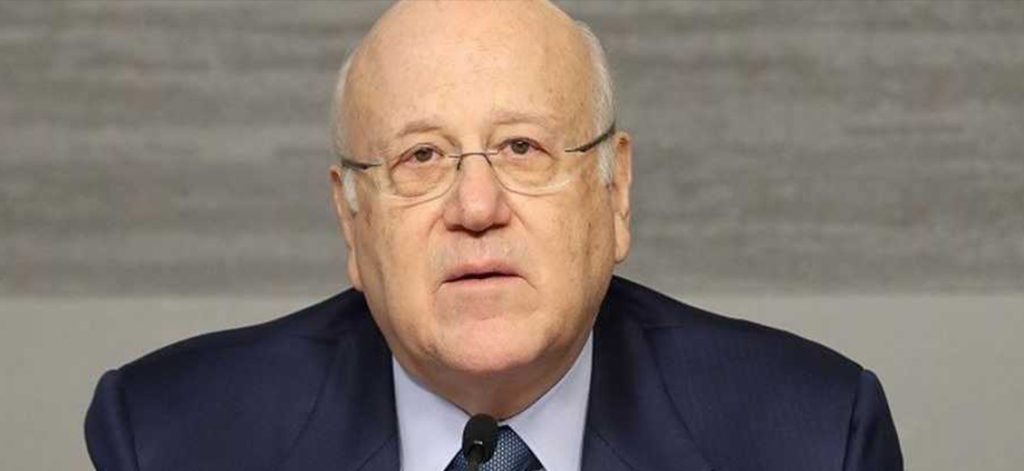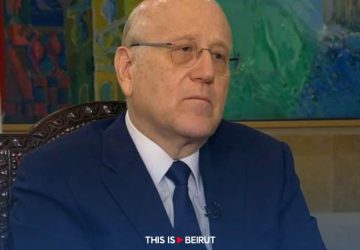Caretaker Prime Minister Najib Mikati emphasized that one of his government’s key objectives is “striving to address the current economic and financial crisis by primarily approving the capital control law.”
During his speech at the Union of Arab Banks (UAB) conference on Thursday, themed “Arab Economic Security in Light of Geopolitical Changes,” Mikati declared, “This economic rescue endeavor also includes approving essential reforms and laws, sharing losses, protecting depositors’ funds and restructuring the banking sector.” In this context, he stressed the importance of “developing an investing environment to pave the way for promising opportunities,” particularly through “stimulating the economic cycle and enhancing political and economic relations with Arab countries, which are Lebanon’s key partners.”
According to Mikati, this entails the imperative to “assume financial obligations at both local and international levels, reschedule debts, build up foreign currency reserves, reduce expenses, increase imports, attract foreign investments and counter corruption, money laundering, financial misdemeanors and terrorism.”
Assessment of the Current Economic Situation
Mikati addressed the multiple crises facing Lebanon amidst ongoing regional tensions. “These challenges weigh heavily on the Lebanese people, who are suffering an unprecedented economic, financial and humanitarian crisis, coupled with the loss of fundamental moral and material components needed to withstand these difficulties and overcome them,” he noted.
He primarily denoted the issue of “the presidential vacancy that causes institutional and political instability, exacerbates the economic and financial crisis and delays the launch of reforms and recovery plans.” In this context, he denounced “Israeli attacks and aggression against Lebanese territory,” “violations of UN Security Council Resolution 1701” and “migratory waves of displaced Syrians that have profoundly affected the Lebanese landscape.”
Meanwhile, Wassim Mansouri, the first deputy governor of the Central Bank of Lebanon (BDL), asserted that the most important outcome of halting State financing from the institution’s reserves is “to establish the BDL’s independence and restore its fundamental task as a monetary guarantor.”
He estimated that “to achieve this stability, the Central Bank of Lebanon uses its only remaining tool: controlling the money supply in Lebanese pounds by injecting dollars solely through the State, thus creating a certain balance between the dollarized economy and the Lebanese pound economy.” “Due to said measures, the bank has increased its foreign currency reserves, which now stand at one billion US dollars,” he added.
According to Mansouri, “To lift Lebanon out of its profound economic crisis, it is necessary to hold the judicial system accountable, elaborate a clear plan to manage depositors’ funds and reconstruct the economy by restoring the banking sector, restructuring the State and building its institutions.”





